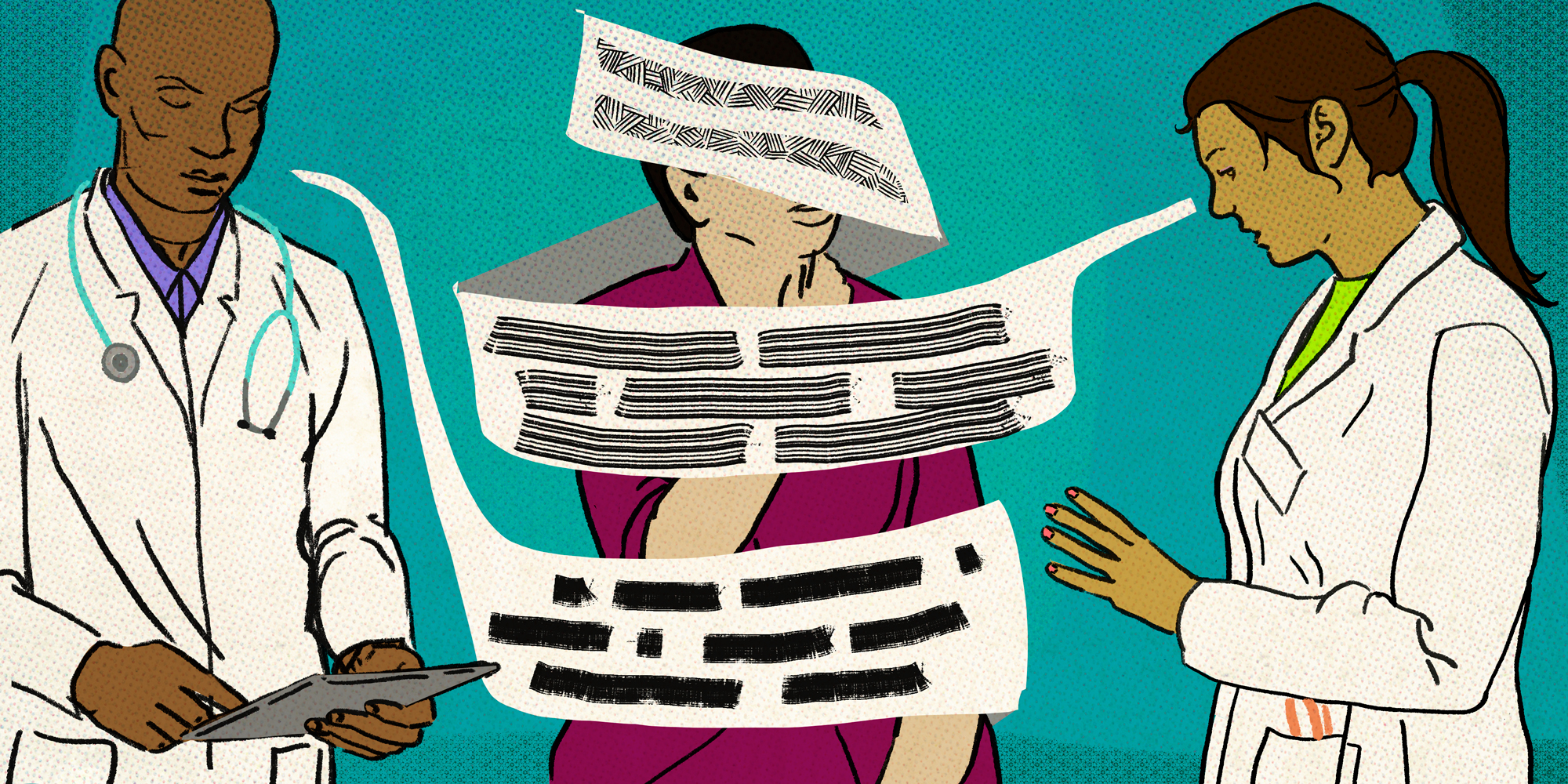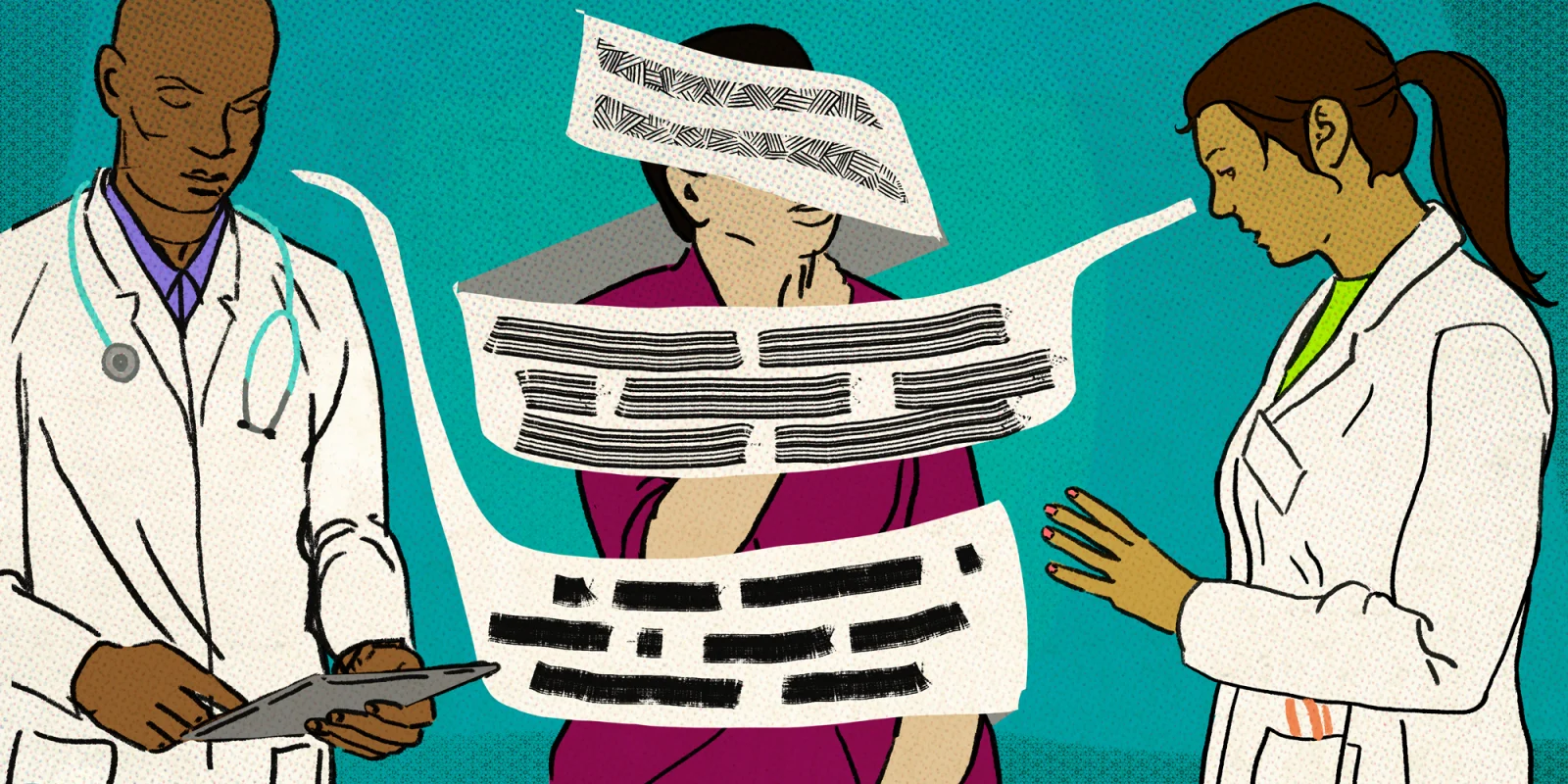
“Well, looks like you failed conservative treatment,” the orthopedic resident said to me as my swollen, broken toe dangled over the exam table. He left the room. I looked down at my knee-high walking boot, covered in fading cartoon stickers gifted by my pediatric patients. The well-worn boot seemed to stare up at me mockingly. Guess you wasted the year lugging me around, I imagined it sneering. Ha ha. I overheard the resident staffing my case in the hallway. “28-year-old female, fractured sesamoid, failed conservative measures.” The attending, a kind and thoughtful physician, greeted me with a warm but disappointed smile, then repeated the phrase. “Unfortunately, it’s been long enough that we can now say you have failed physical therapy and conservative treatment,” he said. “Let’s talk about surgery.”
I had failed conservative treatment? But I had done everything right! I had worn that bulky boot everywhere, even inside my tiny apartment. I had navigated medical school rotations in that boot, struggling through the frantic pace of outpatient clinics and the endless hours of standing on inpatient rounds. I had traded precious study hours for physical therapy and pool sessions. I had declined social events to keep myself immobilized. I had tried ice, heat, pills, creams, even a fancy home ultrasound machine that hummed at my foot while I sat motionless for an hour a day. I had tried as hard as I could to succeed in “conservative measures.” And yet: I had failed?
As a medical student, I had heard this “patient failed treatment” phrase many times before. It hadn’t struck me as anything more than a transition statement linking a current unsuccessful treatment plan with its logical next step. But after my own experience as a patient, I started to notice it everywhere. It rolled off physicians’ tongues in every clinical setting: Patient with rheumatoid arthritis failed methotrexate; time to try a biologic immunosuppressant. Patient with atrial fibrillation failed rate control; time for rhythm control. Patient with asthma failed albuterol monotherapy; time to add a daily inhaled corticosteroid. This simple phrase has become embedded into clinical encounters. It has become so normal that it is nearly invisible to those of us who speak the language of medicine.
Yet it is not invisible to our patients. It also is not accurate. When we, as clinicians, don’t get the result we were hoping for, in most cases the problem is not that our patients have failed our treatments. The problem is that our treatments have failed our patients.
This is often due to factors out of our control. Sometimes our treatments fail because our medicines and therapies may not be equipped to deal with a patient’s particular pathophysiology, disease severity, or comorbid conditions. Sometimes it’s that the health care system does not allow our patient to access, afford, or implement our recommended treatments. Sometimes it’s because broader societal systems have not provided our patient with conditions essential for following a treatment plan: safe living conditions, a sufficient income, strong social support, or the myriad of other social determinants of health. At each of these levels, it’s health care that has failed our patients, not the other way around.
Despite having limited control over these factors, our words still matter. The phrases we choose convey both clinical and emotional meanings. As a patient in that orthopedic office, I knew that my doctor was disappointed that our treatment plan had not worked, not disappointed with me personally. I knew that doctors use this phrase all the time, and that he probably hadn’t even realized what he had said. I also knew that I had almost certainly used the phrase to describe my own patients. But even though I knew all this, my doctor’s words still made me feel like he was disappointed in me. I felt that I had failed treatment, and that I had failed him.
Our choice of words affects not only our patients, but also, our medical teams and the broader culture of medicine. Anthropologists have described how what we think of as “common sense” — what we assume is “natural” or “normal” — is often culturally-created. Language plays a key role, because when particular phrases become embedded into a culture, they can simultaneously perpetuate their meanings and fade into the background. In medicine, this “patient failed treatment” phrase strikes me as one of these instances. We hear the phrase so often that we do not even notice it anymore. But even when we do not explicitly mean that our patients have failed our treatments, the words nonetheless continue to carry meaning. Even though we do not intend to blame our patients, nor consciously believe they deserve blame, our words nonetheless do blame our patients.
These words can affect our thoughts and actions without our conscious awareness. By blaming our patients, our words remove blame from sources that are both difficult and critical for us to grapple with: The shortcomings of science. The flaws of the health care system. The consequences of our society’s gaping inequality. The inevitability of human illness and death, and therefore, the insurmountable limits of our own abilities as healers.
What if, instead of choosing words that blame patients, we collectively chose to invert the “patients failed treatment” phrase? To say instead to our patients, “Our treatments so far have failed you. Here is the next step.” What impact might this small linguistic change have on our therapeutic alliances — on our patients’ belief in our support, and on our belief in their goals? And what about among our colleagues, in our conversations about clinical care: what impact might this reversal have on the “common sense” that underlies our clinical cultures?
I hope we try to find out.
Hanna Saltzman is a fourth-year medical student at the University of Michigan. Prior to medical school, she worked in public health and medical journalism. She is matching into pediatrics.
Illustration by Jennifer Bogartz







